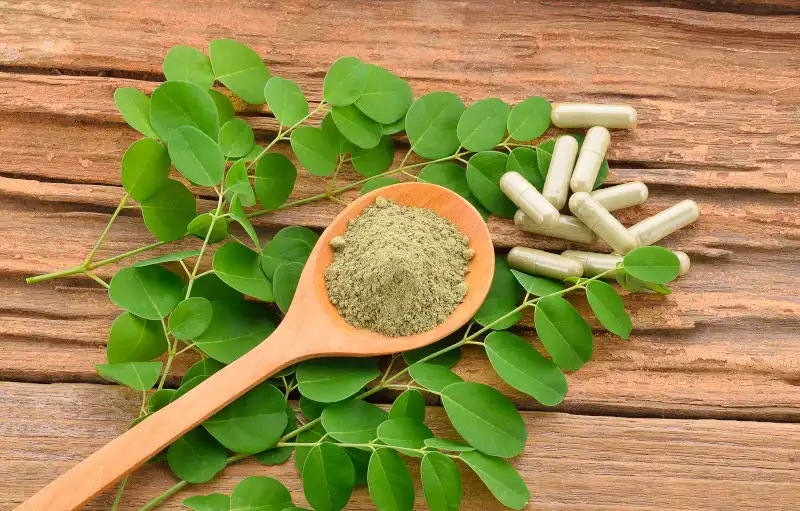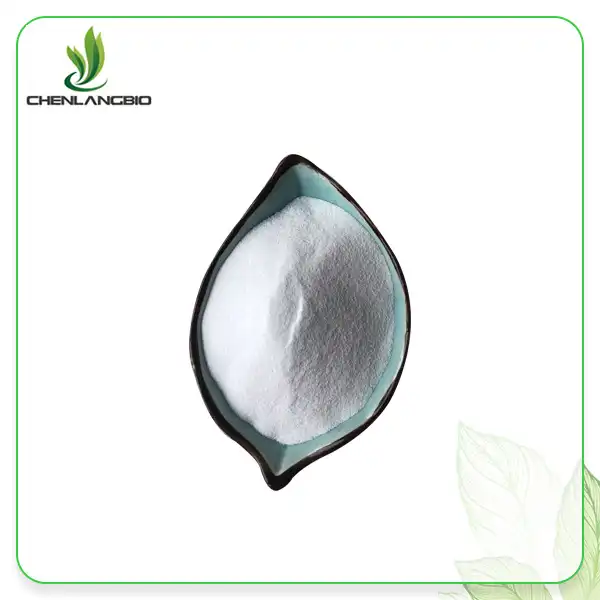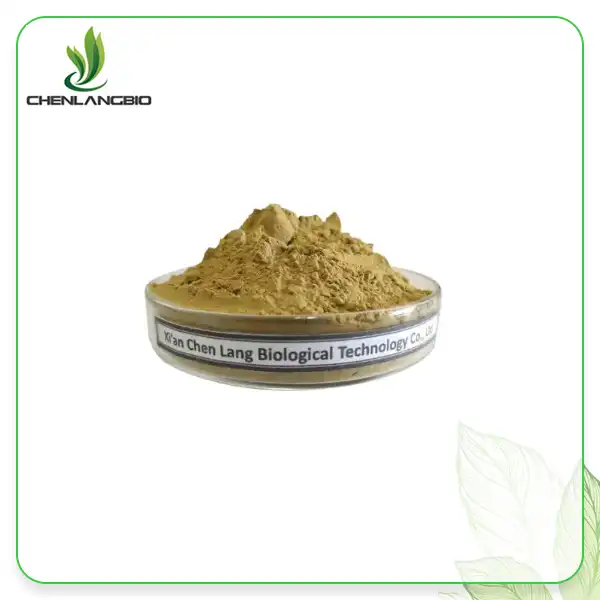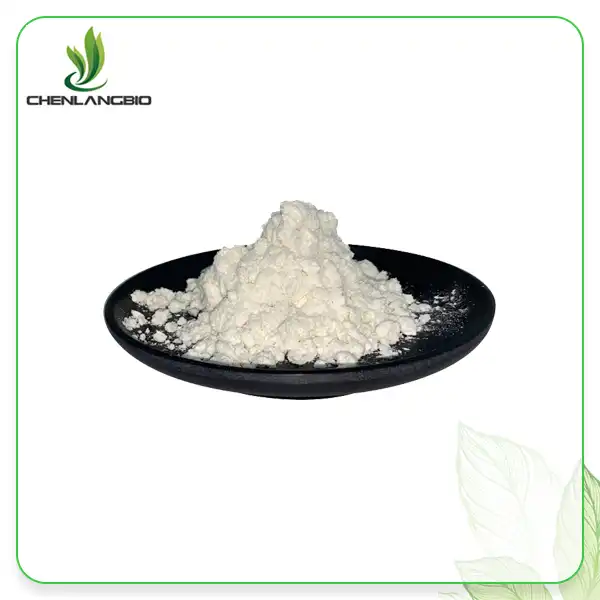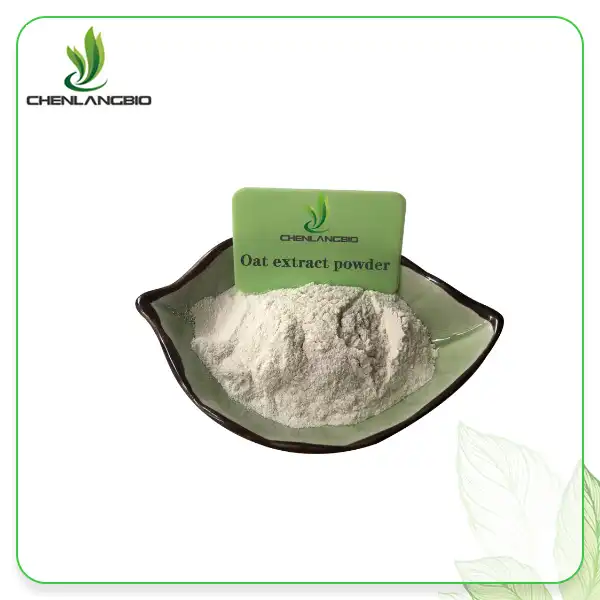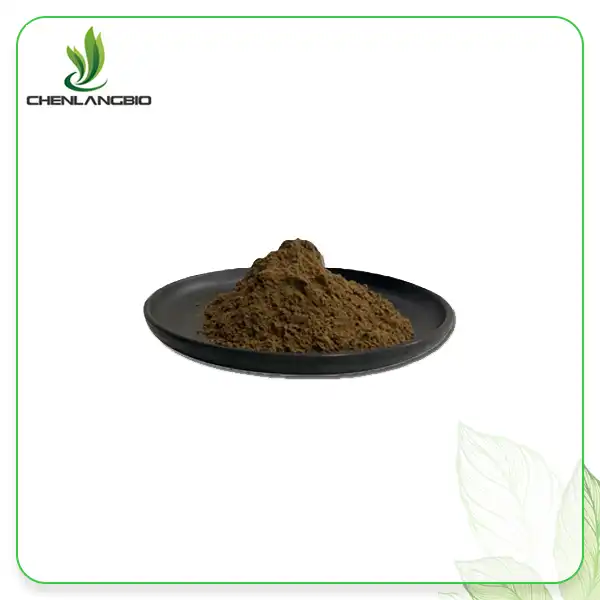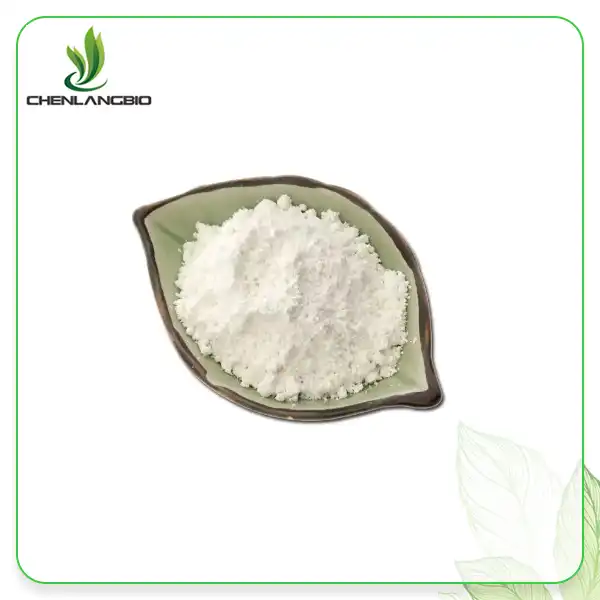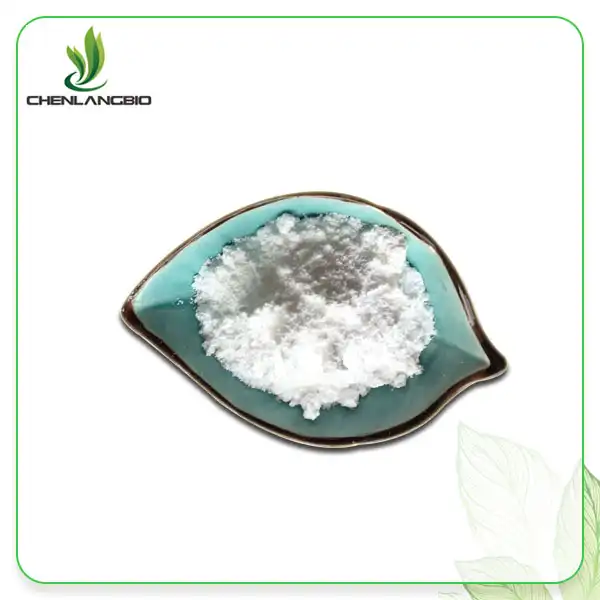Paeoniflorin 80%: A Natural Solution for Inflammation
2024-11-12 14:23:20
Inflammation is a common health concern that affects millions of people worldwide. While it's a natural response of the body to protect itself, chronic inflammation can lead to various health issues. In recent years, natural remedies have gained popularity as alternatives to conventional anti-inflammatory medications. One such promising compound is Paeoniflorin, particularly in its concentrated form of paeoniflorin 80%. This blog post will explore the potential benefits of Paeoniflorin 80% as a natural solution for inflammation and pain relief.
Paeoniflorin's Role in Reducing Inflammation
Paeoniflorin is a monoterpene glycoside derived from the roots of Paeonia plants, commonly known as peonies. These beautiful flowers have been used in traditional Chinese medicine for centuries due to their medicinal properties. Modern research has shed light on the specific mechanisms through which Paeoniflorin exerts its anti-inflammatory effects.
Studies have shown that Paeoniflorin can inhibit the production of pro-inflammatory cytokines, such as tumor necrosis factor-alpha (TNF-α) and interleukin-1beta (IL-1β). These cytokines play a crucial role in the inflammatory process, and by reducing their levels, Paeoniflorin helps to mitigate inflammation throughout the body.
Moreover, Paeoniflorin has been found to modulate the activity of nuclear factor-kappa B (NF-κB), a key transcription factor involved in the inflammatory response. By regulating NF-κB, Paeoniflorin can help control the expression of various inflammatory genes, further contributing to its anti-inflammatory properties.
Another remarkable aspect of Paeoniflorin's anti-inflammatory action is its ability to suppress the activation of inflammatory cells, such as macrophages and neutrophils. These cells are essential components of the immune system but can contribute to excessive inflammation when overactivated. By modulating their activity, Paeoniflorin helps maintain a balanced inflammatory response.
Why Choose Paeoniflorin 80% for Pain Relief?
Paeoniflorin 80% represents a highly concentrated form of this beneficial compound, offering several advantages for those seeking natural pain relief and anti-inflammatory support:
- Potency: The high concentration of Paeoniflorin in this extract ensures that users receive a substantial dose of the active compound, potentially leading to more pronounced anti-inflammatory effects.
- Purity: With an 80% concentration, this extract undergoes rigorous purification processes, resulting in a product with minimal impurities and максимальная efficacy.
- Versatility: Paeoniflorin 80% can be incorporated into various formulations, including capsules, tablets, and topical applications, making it a versatile option for different needs and preferences.
- Natural origin: As a plant-derived compound, Paeoniflorin 80% appeals to those seeking natural alternatives to synthetic anti-inflammatory drugs.
- Potential for fewer side effects: Compared to some conventional anti-inflammatory medications, Paeoniflorin may offer a more favorable side effect profile, though more research is needed to fully establish its long-term safety.
The analgesic properties of Paeoniflorin have been demonstrated in various preclinical studies. Research suggests that Paeoniflorin can modulate pain perception by interacting with opioid receptors and influencing neurotransmitter systems involved in pain signaling. This dual action on both inflammation and pain makes Paeoniflorin 80% a promising natural solution for those suffering from inflammatory conditions accompanied by pain.
How Paeoniflorin Compares to Other Anti-Inflammatory Agents?
To understand the potential of paeoniflorin 80% as an anti-inflammatory agent, it's helpful to compare it with other commonly used substances:
Paeoniflorin vs. NSAIDs: Non-steroidal anti-inflammatory drugs (NSAIDs) like ibuprofen and naproxen are widely used for pain and inflammation relief. While effective, long-term use of NSAIDs can lead to gastrointestinal issues and increased cardiovascular risks. Paeoniflorin, on the other hand, may offer similar anti-inflammatory benefits without these specific side effects, though more research is needed to confirm its long-term safety profile.
Paeoniflorin vs. Curcumin: Curcumin, derived from turmeric, is another popular natural anti-inflammatory compound. Both Paeoniflorin and curcumin share similar mechanisms of action, such as inhibiting pro-inflammatory cytokines and modulating NF-κB activity. However, Paeoniflorin may have an advantage in terms of bioavailability, as curcumin is notorious for its poor absorption in the body.
Paeoniflorin vs. Corticosteroids: Corticosteroids are powerful anti-inflammatory drugs often prescribed for severe inflammatory conditions. While highly effective, they can cause significant side effects with long-term use. Paeoniflorin offers a gentler approach to inflammation management, potentially suitable for milder cases or as a complementary therapy.
Paeoniflorin vs. Omega-3 fatty acids: Omega-3s, found in fish oil and some plant sources, are known for their anti-inflammatory properties. While both Paeoniflorin and omega-3s can be beneficial for inflammation, they работают through different mechanisms. Combining these natural anti-inflammatory agents may offer synergistic benefits.
It's важно to note that while Paeoniflorin 80% shows promise as a natural anti-inflammatory agent, it should not be considered a replacement for prescribed medications without consulting a healthcare professional. Each individual's health situation is unique, and what works best can vary from person to person.
The potential applications of Paeoniflorin 80% extend beyond general inflammation and pain relief. Research has suggested possible benefits in specific health conditions:
- Rheumatoid Arthritis: Studies have shown that Paeoniflorin may help reduce joint inflammation and cartilage damage associated with rheumatoid arthritis.
- Neuroinflammation: Emerging research suggests that Paeoniflorin could have neuroprotective effects by reducing inflammation in the brain, potentially beneficial in conditions like Alzheimer's disease.
- Cardiovascular Health: By modulating inflammatory processes, Paeoniflorin may contribute to improved cardiovascular health, though more research is needed in this area.
- Skin Inflammation: Topical applications of Paeoniflorin have shown promise in reducing skin inflammation, suggesting potential use in dermatological conditions.
As research on Paeoniflorin continues to evolve, we may discover even more potential applications for this remarkable compound. The concentrated form of Paeoniflorin 80% offers an exciting opportunity to harness these benefits in a potent and versatile format.
When considering the use of Paeoniflorin 80% or any new supplement, it's crucial to prioritize quality and safety. Look for products from reputable manufacturers that undergo third-party testing to ensure purity and potency. Always start with the recommended dosage and monitor your body's response.
Conclusion
In conclusion, paeoniflorin 80% представляет собой promising natural solution for inflammation and pain relief. Its многогранный механизм действия, combined with its potential for fewer side effects compared to some conventional medications, makes it an интересный option for those seeking natural alternatives. As research continues to unfold, we may see Paeoniflorin playing an increasingly важный role in the management of inflammatory conditions and the promotion of overall health and well-being.
Remember, while natural solutions like Paeoniflorin 80% can be valuable tools in managing inflammation, they should be part of a holistic approach to health. A balanced diet, regular exercise, stress management, and adequate sleep all play crucial roles in reducing chronic inflammation and promoting overall wellness. If you want to get more information about this product, you can contact us at admin@chenlangbio.com.
References
1. Zhang, L., et al. (2019). Paeoniflorin: A Monomer from Traditional Chinese Medical Herb Ameliorates Schistosoma japonicum Egg-Induced Hepatic Fibrosis through Inhibiting NF-κB Signaling Pathway. Frontiers in Pharmacology, 10, 41.
2. Zhao, Y., et al. (2016). Paeoniflorin protects against ANIT-induced cholestasis by ameliorating oxidative stress in rats. Food and Chemical Toxicology, 91, 1-9.
3. Jiang, W. L., et al. (2014). Paeoniflorin attenuates neuroinflammation and dopaminergic neurodegeneration in the MPTP model of Parkinson's disease by activation of adenosine A1 receptor. British Journal of Pharmacology, 171(18), 4314-4325.
4. Zhang, J., et al. (2019). Paeoniflorin ameliorates experimental autoimmune encephalomyelitis via inhibition of dendritic cell function and Th17 cell differentiation. Scientific Reports, 9(1), 1-13.
5. Chen, M., et al. (2015). Protective effect of total glucosides of paeony on experimental autoimmune encephalomyelitis in mice. Naunyn-Schmiedeberg's Archives of Pharmacology, 388(10), 1045-1053.
6. Wang, Y. N., et al. (2012). Paeoniflorin attenuates Aβ1-42-induced inflammation and chemotaxis of microglia in vitro and in vivo. Brain, Behavior, and Immunity, 26(3), 438-448.
Send Inquiry
Related Industry Knowledge
- What Are the Competitive Advantages of Buying Bulk Acetylcysteine Powder from China?
- Pro-Xylane Powder: The Ultimate Anti-Aging Solution
- Is Centella Asiatica An Antioxidant
- How Do You Use Camellia Oleifera Seed Extract Powder
- Does Bakuchiol Actually Work?
- What are the Benefits of Turkesterone
- Deoxyarbutin Powder Supplier
- Does Lutein Extract Powder Improve Eyesight
- Is Centella Asiatica Extract Powder Good for Skin
- When should I take Tribulus Terrestris Extract Powder for bodybuilding?

